Britain in Crisis: Unveiling the Root Causes of the Nation’s Escalating Disorder and Violence_L
The Roots of Chaos and Violence in Britain
he sudden wave of riots in the UK shows the unpredictable impact of misinformation on social media. Fake news inciting racism and religious discrimination easily bypasses the public, is shared at a dizzying speed, and erupts into violence on the streets. The incident once again shows that racism and anti-blackness still exist in British society today.
Wave of violent protests spreads in the UK
The riots were sparked by false rumours circulating on social media after three young girls were stabbed to death at a dance class in Southport on July 29. British police arrested a suspect at the scene, but have not released his identity because he is a minor.
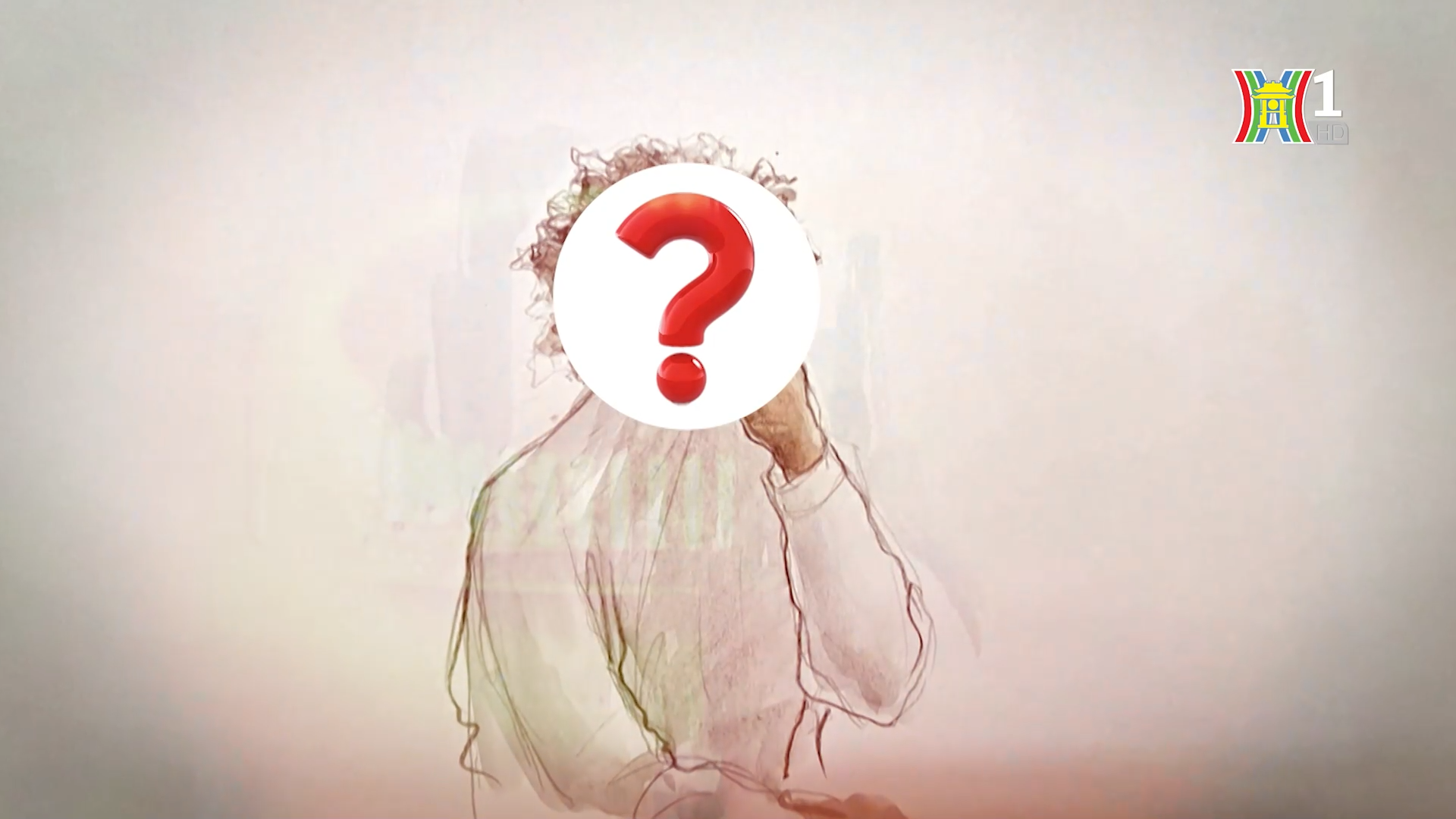
Social media posts after the stabbing identified the attacker as Ali Al-Shakati, a Muslim refugee who arrived in Britain by boat last year and was on a watch list by the MI6 intelligence agency.
The false information spread so quickly that British police were forced to break with protocol and reveal the suspect’s identity. He is Axel Rudakubana, 17, born in Cardiff, England, and living near the city of Southport. Police have not released the suspect’s motive, but said it was not a terrorist attack. The information circulating on social media has been confirmed by police as false, but it has caused violent protests against refugees and Muslim communities across the UK.
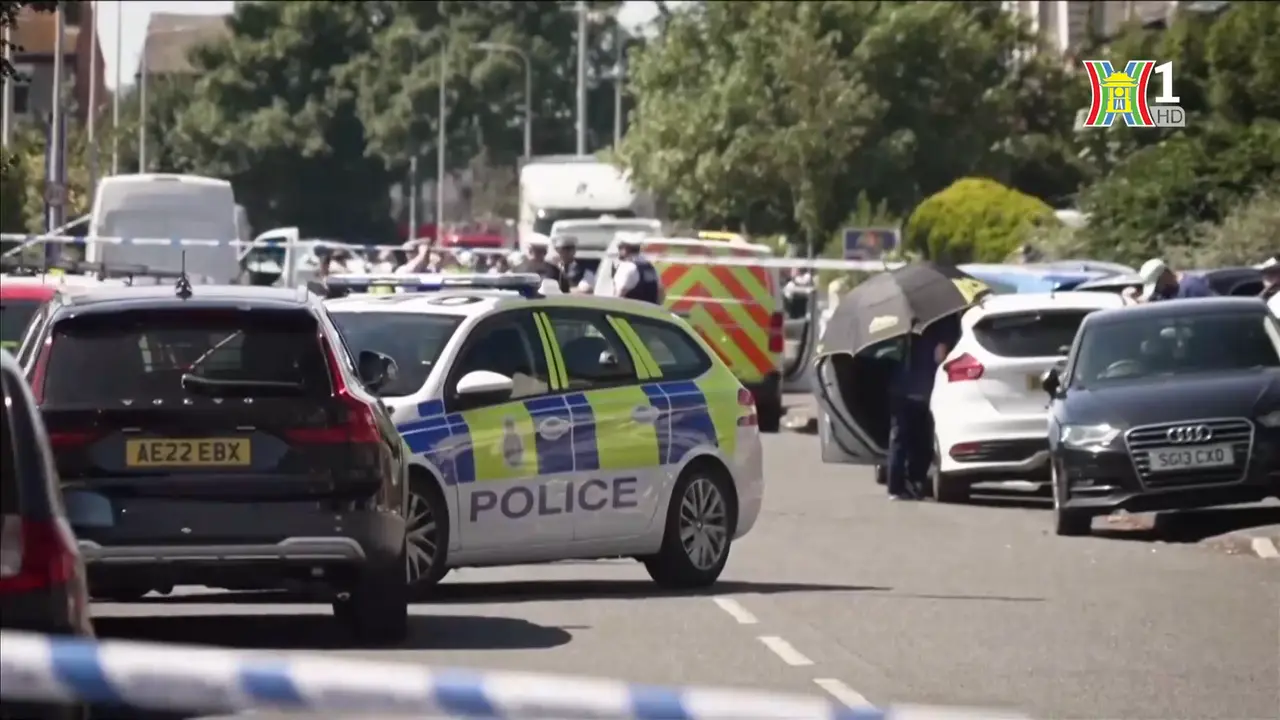
The first riots occurred in Southport on July 30 at a vigil for the victims. Hundreds of protesters gathered outside a mosque, with rioters setting fire to police cars and throwing bricks, rocks and flares at the mosque and police, injuring dozens of people.
Following the Southport riots, from July 31 to August 9, about 100 far-right and anti-far-right protests broke out in a series of major cities across the UK.
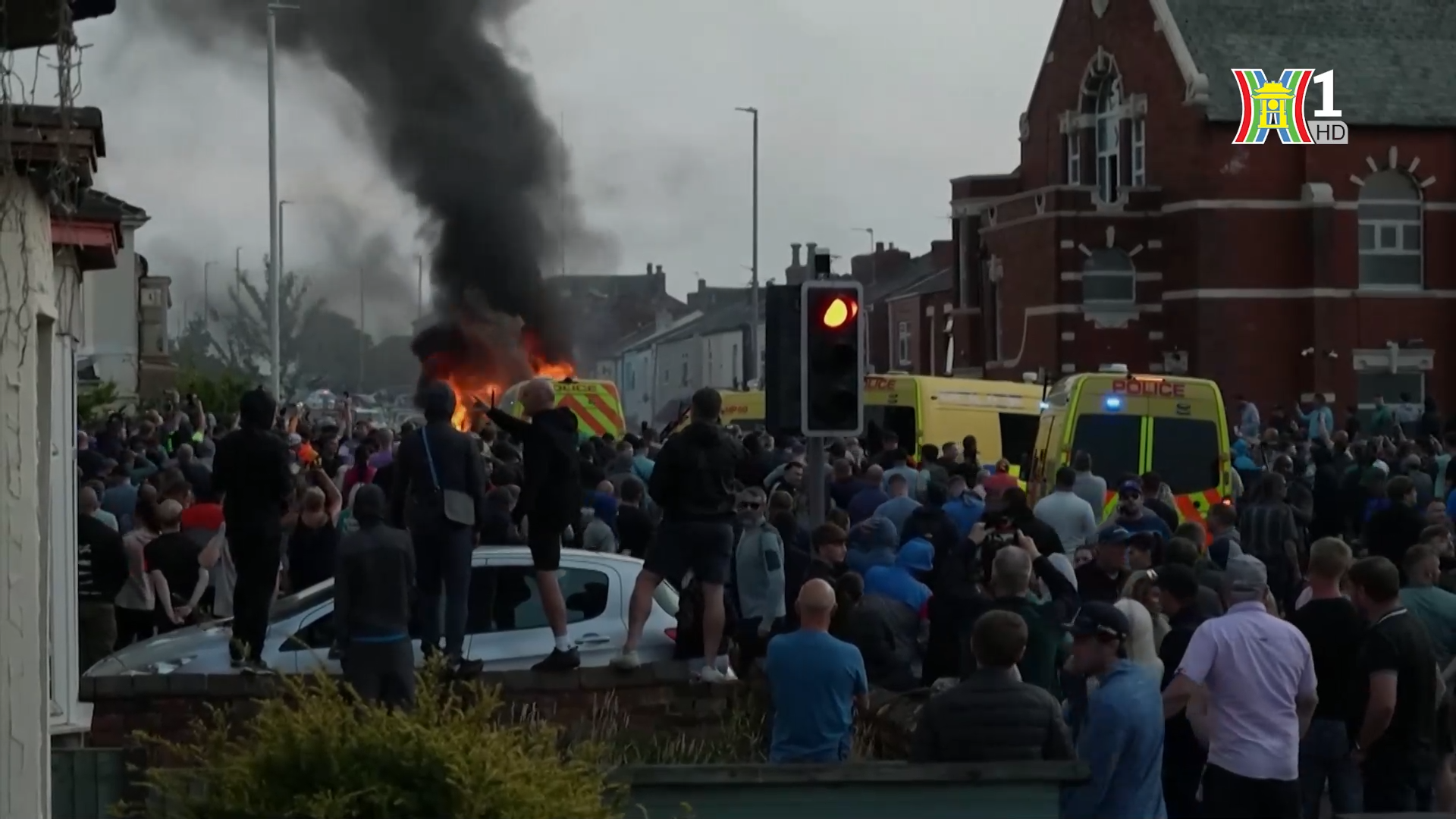
Many of these turned into riots as extremists attacked police with fire extinguishers, threw bottles, bricks, flares, petrol bombs, set police cars on fire, burned and looted shops, besieged mosques and attacked hotels housing asylum seekers.
In addition, a wave of protests and marches against racism in the UK also took place, attracting the participation of a large number of people in many major cities across the UK, including the capital London. In many places, the number of people participating in the event far exceeded the number of people participating in the anti-immigration protests. Police forces have been increased to maintain order and prevent the risk of clashes between protest groups. According to police sources, nearly 6,000 specialized police officers have been mobilized to be ready to quell violent protests planned by far-right groups on August 7 as well as to respond to disorder in the coming days.
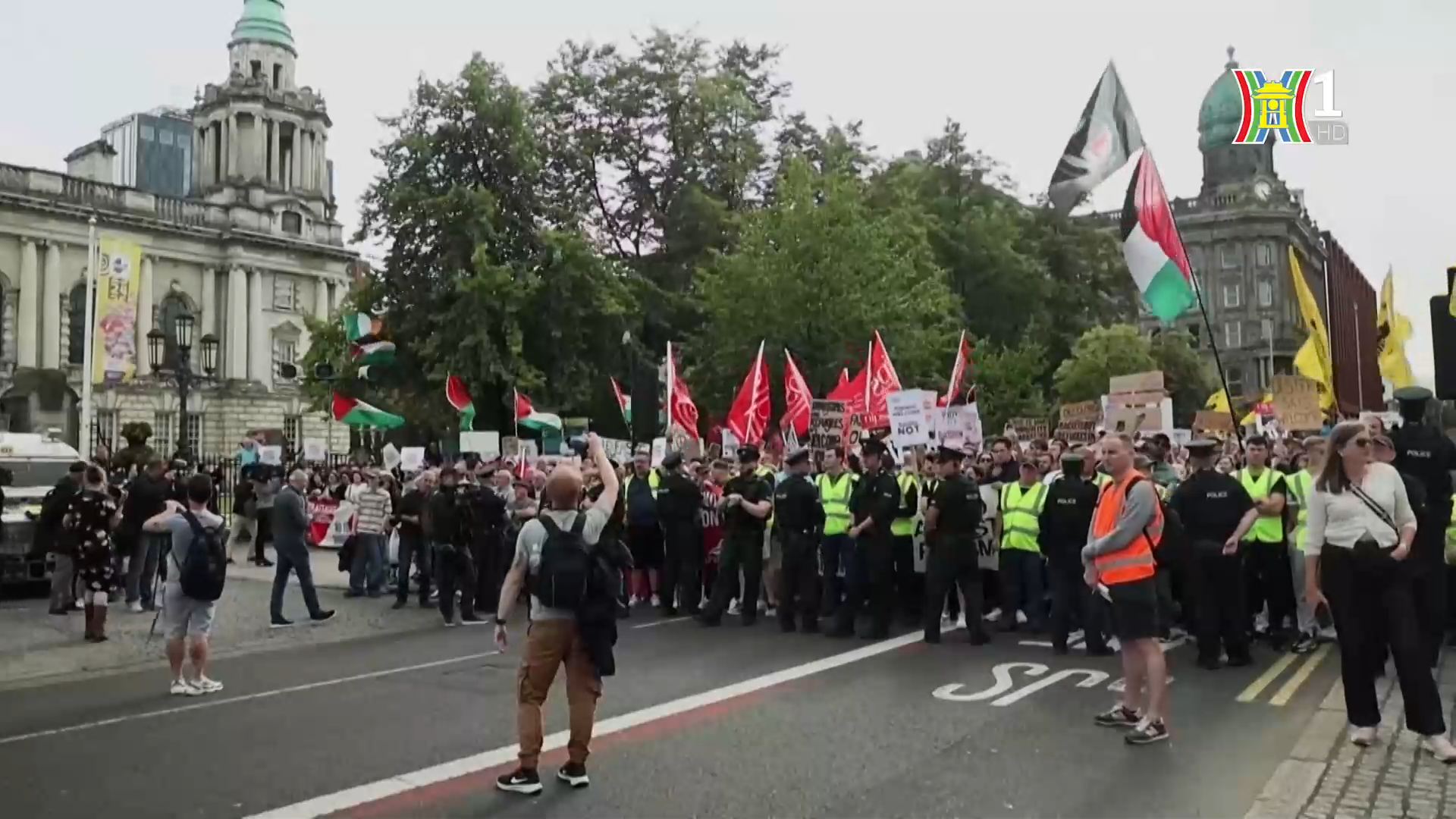
At an anti-racism protest in north London, crowds holding pro-immigration banners gathered outside an immigration advice centre, in an attempt to deter potential threats to the facility.
“Diversity is our strength,” said anti-racism activist Jo Cardwell. “My Muslim neighbours are my brothers and sisters. If they are attacked, I am attacked, because they are part of my community. Immigrants work very hard, contribute to the community, and they bring cultural richness. So actually, I think that is something that should be celebrated and protected, not feared.”
“In our society, we welcome all workers, all people, regardless of skin colour, religion, ethnicity, gender, country of origin, political beliefs. We are all human beings, deserving of equal treatment. We welcome and cherish the beautiful diversity of our society in all its forms,” said Paddy Mackle, Confederation of Trade Unions in Northern Ireland, UK.
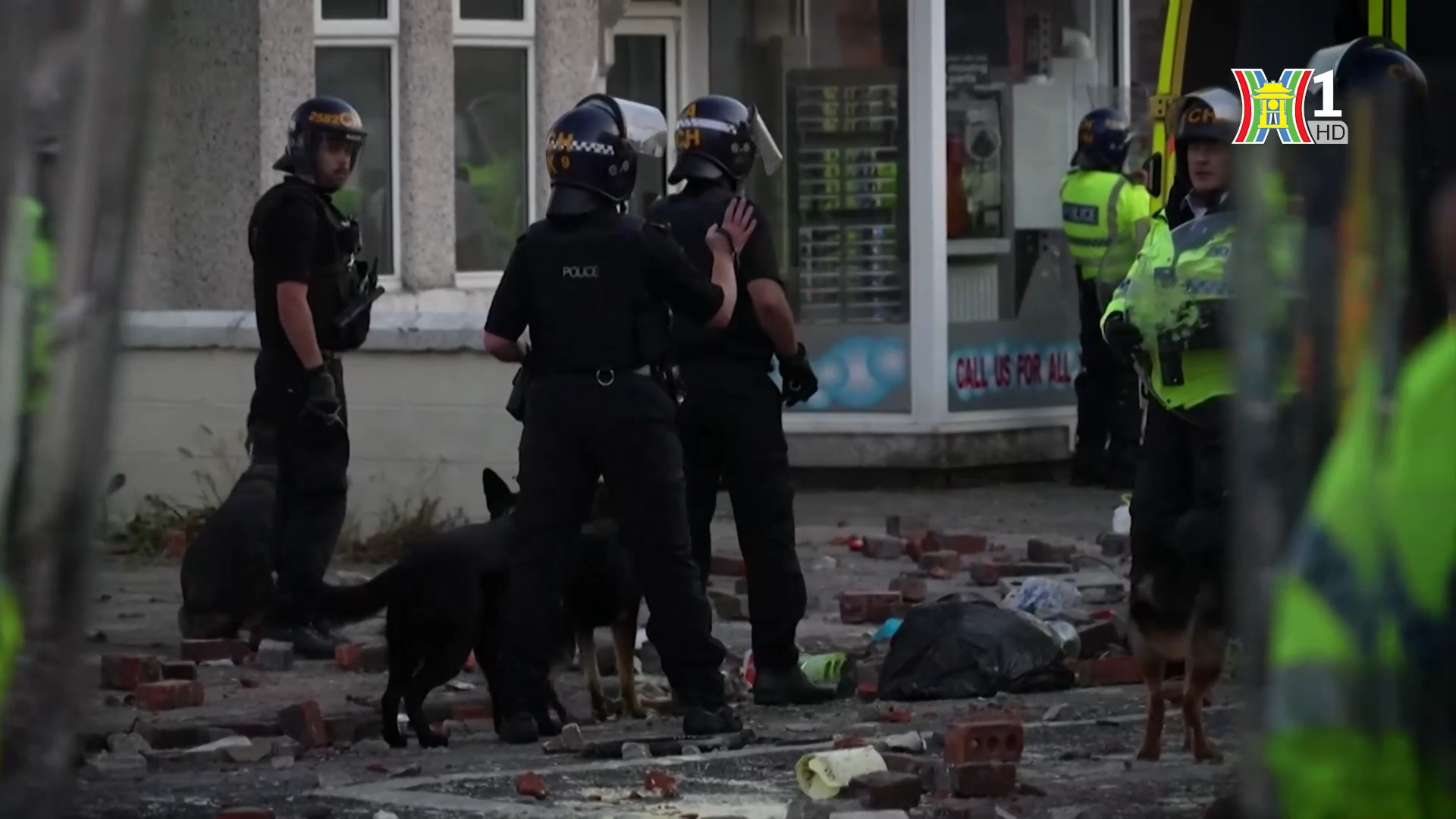
Violent clashes broke out between far-right and anti-far-right protesters, as well as between the two groups and the police. British Prime Minister Keir Starmer cancelled his family holiday in Europe and decided to stay in the UK, focusing on coordinating efforts to deal with the riots.
The suspects are currently being raided and arrested by police. On August 9, a British court sentenced two men to prison for inciting far-right violence on social media in connection with a stabbing in the town of Southport.
“That should send a very strong message to anyone involved, either in person or online, that they will likely be dealt with within a week and that no one, no one, should be involved in this chaos,” said British Prime Minister Keir Starmer.
The Roots of Chaos and Violence in Britain
According to Arab News, the summer of 2024 saw an unprecedented wave of riots in the UK. These riots not only caused severe property damage but also sparked a wave of extensive debate about their causes and significance. The root causes of the riots were not just acts of violence but also reflected broader social discontent. Misinformation on social media also fueled public anger. Social inequality and immigration policies also played a major role in causing this discontent and riots.
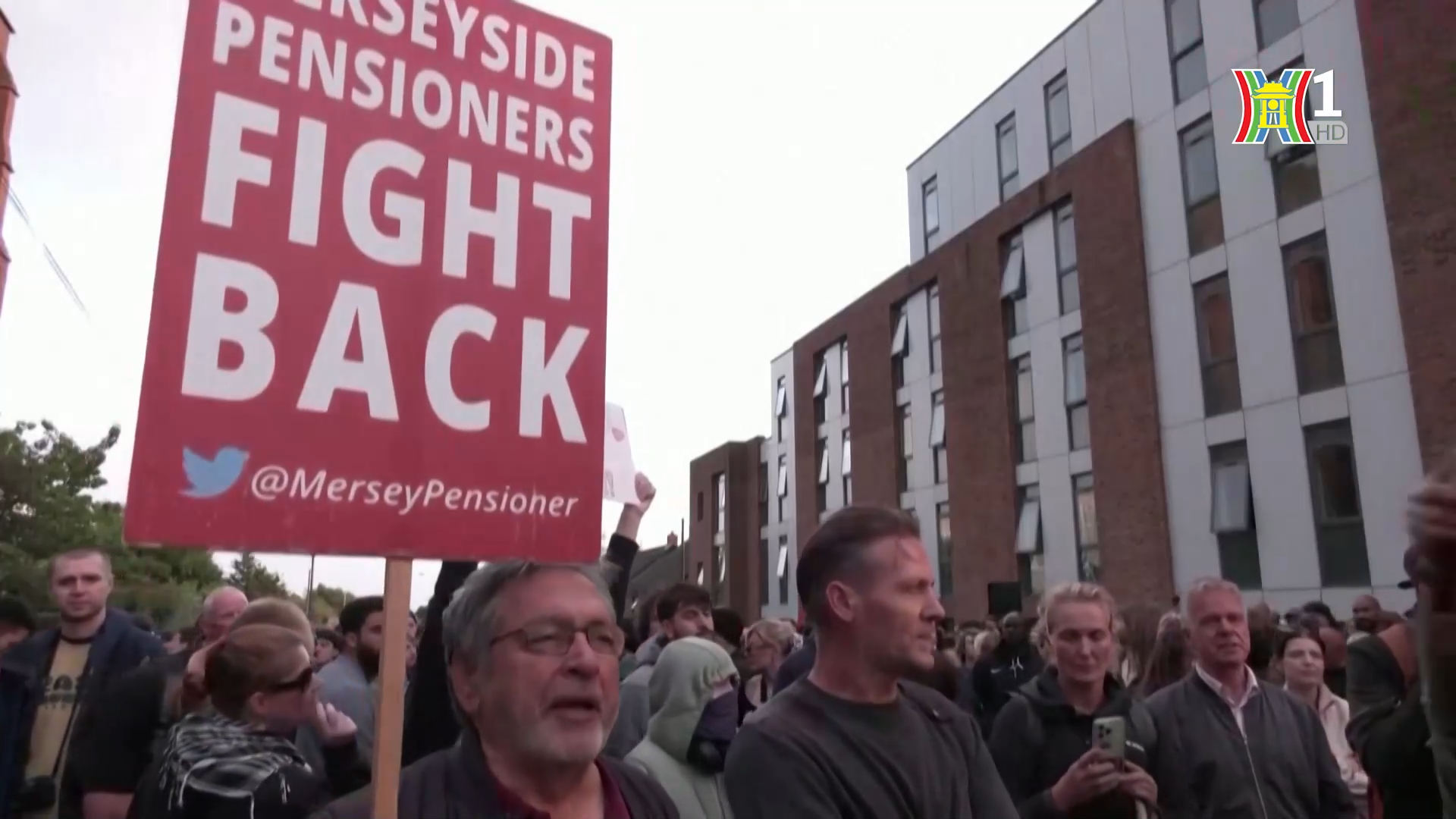
In fact, Islamophobia has been on the rise in the UK in recent years. According to Home Office data, hate crimes based on race and religion are at high levels, with Islam being the most targeted religious group.
A report published in 2023 found that Islamophobic violent incidents doubled across the UK between 2012 and 2022, with reasons including increased far-right activity and anti-Muslim attacks globally.
The Independent can reveal that a Muslim political group was “attacked” with racist abuse and threats of violence during July’s general election, prompting them to report it to the police.
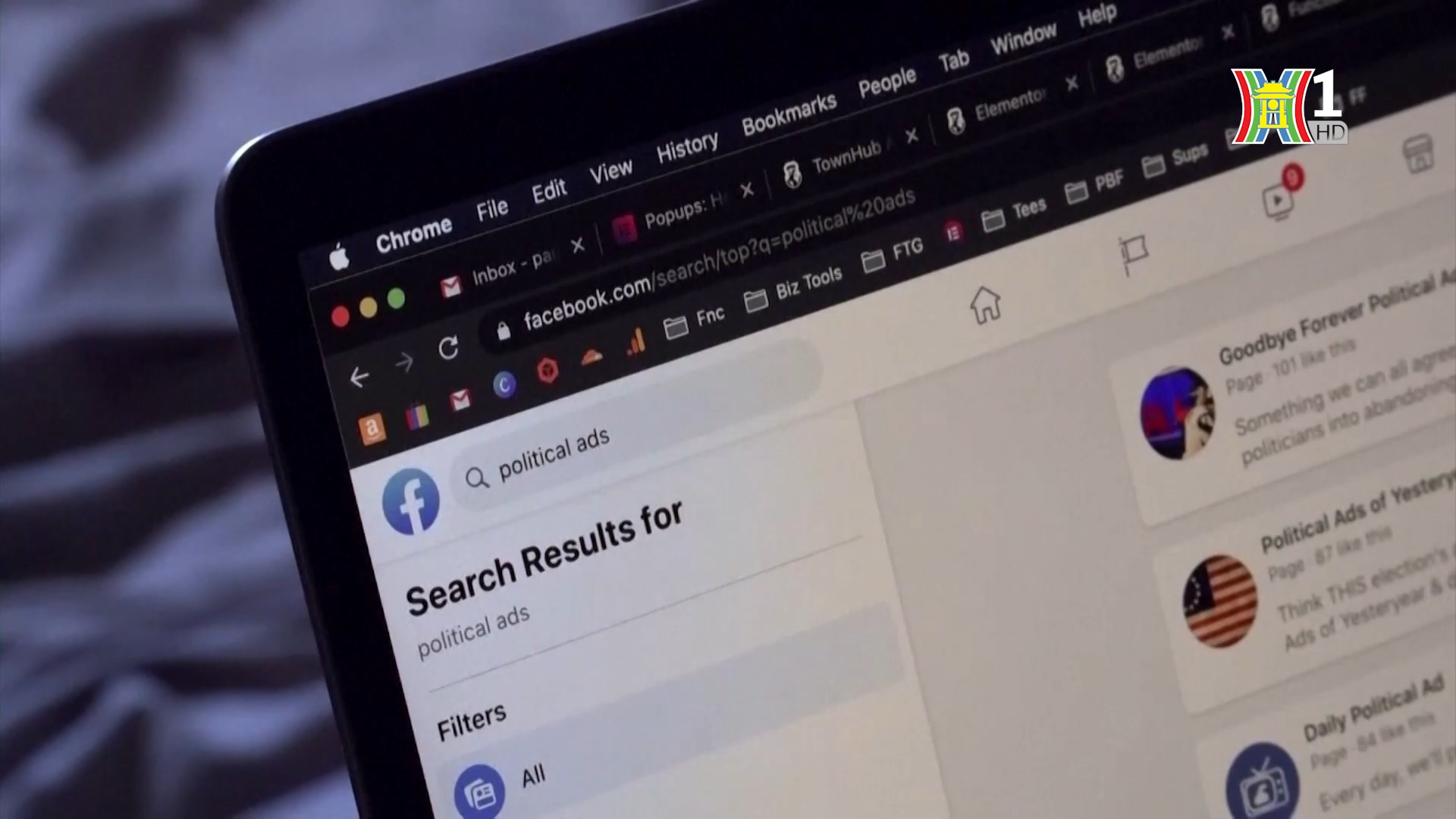
In March, many British Muslims said they were too scared to leave their homes after dark. New figures from the London-based Islamophobia Response Unit (IRU) show that incidents of anti-Muslim violence have soared by 365% since the Israel-Hamas conflict in the Gaza Strip began last October.
Some analysts also pointed out that the government’s failure to fully implement security policies was also a reason why the protests quickly erupted into riots.
In the face of unrest, Muslims in the UK are extremely worried and uneasy about riots carried out by far-right groups.
” The Muslim community is being terrorised. They are so scared for their safety that they can’t go out. They are scared that anything can happen, as we have seen with taxi drivers being attacked, women being threatened and mosques being vandalised. And in the last few days, these things have been happening every day across different parts of the UK,” said Iman Atta, director of the Tell Mama project.
A major factor in fueling the unrest was the spread of misinformation on social media. Far-right groups and online influencers used social media to amplify misinformation and stoke public outrage. Platforms like X and Facebook became important tools for spreading anti-immigrant and anti-Muslim rhetoric.

UK Home Secretary Yvette Cooper has said social media companies are partly to blame for spreading misinformation that has led to violence. While leaflets about protest dates and locations were widely circulated on Facebook, violent videos appeared on TikTok, WhatsApp and Telegram were used to call on people to take to the streets to protest…
“We have seen social media used to organise riots, to inflame racial tensions and hatred. We will ensure that crimes are prosecuted online as well as offline. We expect social media companies to take some responsibility, to ensure that they recognise the impact of the kind of misinformation that is being spread.”
Advertisement
Ms Yvette Cooper, UK Home Secretary
Jacob Davey, director of policy and research at the Institute for Strategic Dialogue (ISD), said that misinformation is spread not only by people who want to incite violence, but also by platforms that use algorithms to prioritize displaying content that is likely to attract the most interactions.
Another factor is social inequality and the unequal distribution of resources. Research shows that rising wealth inequality has facilitated the spread of misinformation and public discontent. Frustration with governments that fail to address fundamental social problems has led to a search for scapegoats, including immigrants and asylum seekers.
Impact on the economy
The UK riots of the summer of 2024 reflect a complex combination of factors, including frustration with government, social inequality, and social media misinformation. This combination of factors has created a volatile environment that has led to the riots we are witnessing today. It is not yet possible to estimate the extent of the damage the riots have caused to the retail sector and the UK economy as a whole. However, it is clear that the riots have inflicted a deeper and more lasting wound on an economy that was already struggling.
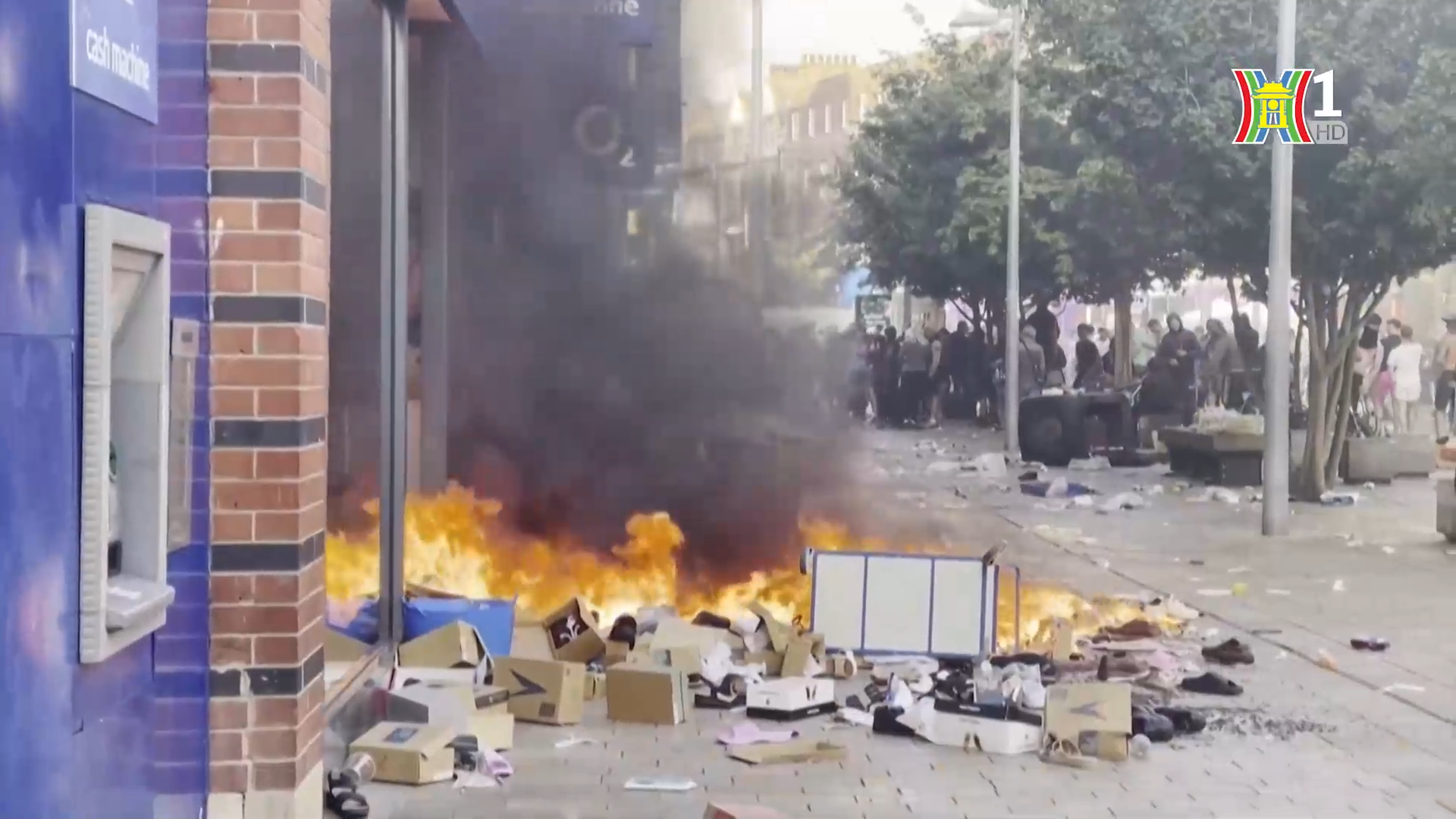
Martin McTague, chairman of the Federation of Small Businesses (FSB), has warned that the wave of street violence in Britain’s towns and cities risks causing damage to retailers and small businesses in the country. He said the disruption to businesses trying to recover from the COVID-19 pandemic was “absolutely deplorable”.
Shops were set on fire and hotels housing asylum seekers were targeted in violent protests. Well-known local retailers such as Sainsbury’s, Greggs and Iceland were also targeted by vandals, suffering significant damage to property and loss of stock.
Mr McTague said it could take months and millions of pounds to recover the losses, and called on central and local government to work together to support smaller firms.
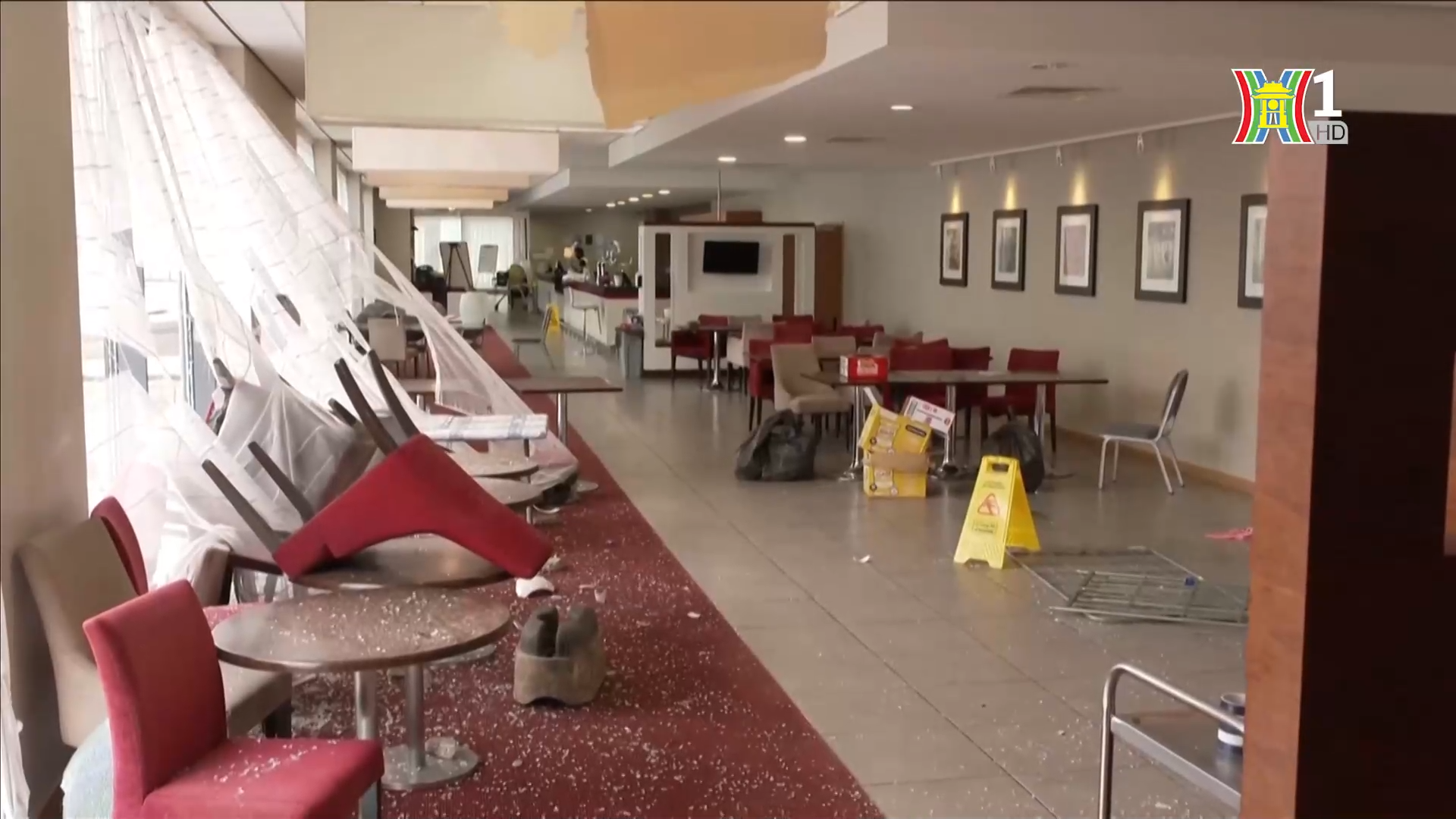
In addition to the immediate financial impact, the riots created a tense, fearful atmosphere for retail workers and customers alike.
As shoppers opt to stay home, retailers are facing a double blow: Sales are down and costs related to security and repairs are rising. These challenges are putting enormous pressure on businesses already struggling with rising costs and economic uncertainty.
The damage is not limited to individual stores. International retailers may be reluctant to enter the UK market or expand their operations in the face of such uncertainty.
This could have a ripple effect across the economy, leading to job losses and reduced tax revenue for the government.
When the dust settles, the UK retail industry will face the daunting task of rebuilding and recovering.
The government of new Prime Minister Keir Starmer is facing many challenges when coming to power in the context of weak economic growth, poor productivity, low investment, record high public debt and taxes, while living standards are falling sharply.
“The UK economy is extremely serious, but it does not mean economic collapse, it is just a prolonged stagnation ,” said John Ross, a researcher at the Chongyang Institute for Financial Studies at Renmin University of China. “ If we look at the growth rate, the current largest GDP figure is 0.3 percent, which is close to stagnation. The reality is that the UK economy has basically stagnated for nearly a decade, and living standards have been stagnant for more than a decade.”
The British Labour Party has just returned to power and the government of Prime Minister Keir Starmer is still very young but has faced many domestic challenges. Observers say that Prime Minister Starmer is facing his first “test” since taking office. Many people are looking forward to seeing how he and his government will act to quell, or at least control, the current riots.


